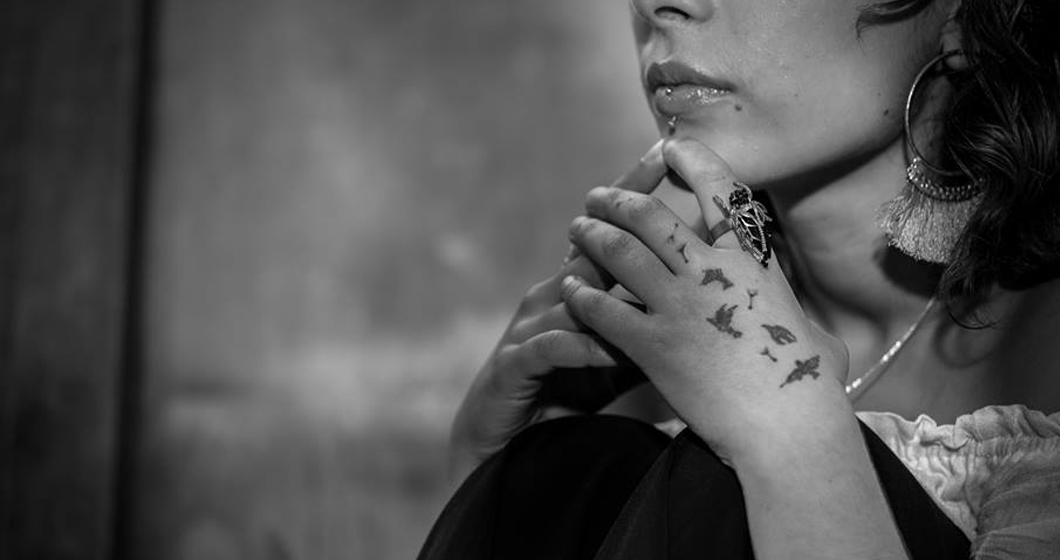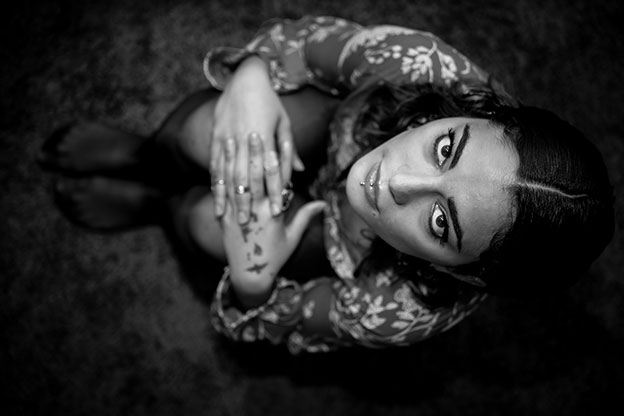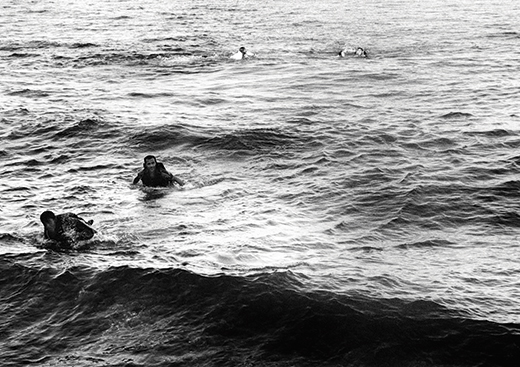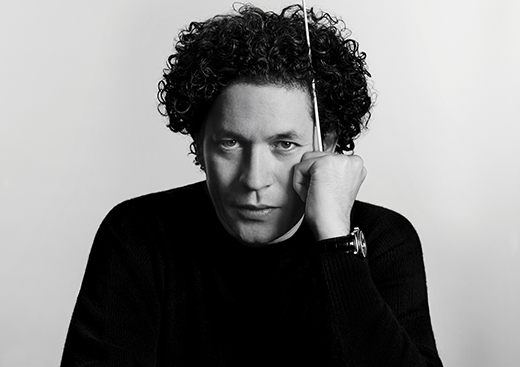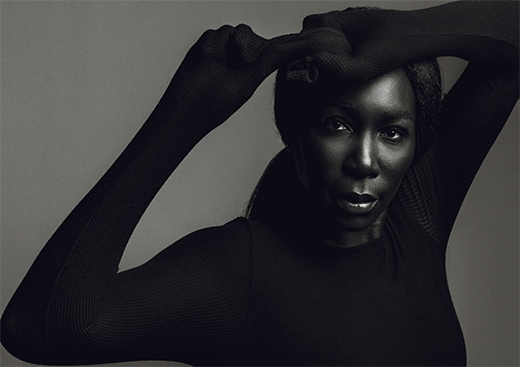For Yara Said, the last 18 months have been epic. Leaving war-torn Syria in 2015 (alone, no less), she made her way across eastern Europe and over the treacherous Mediterranean. For weeks, she called tents, gymnasiums, and random office buildings her home, finally settling in Amsterdam, to reunite with friends, rekindle her art, and restart her life.
Then, last Summer, Yara was contacted by Refugee Nation, a New York based collective, championing the refugee Olympians at the Rio Summer Games. Yara was commissioned to design their official flag. And design it she did, bringing the kind of passion and directness she embodies.
I recently sat down with Yara to explore her plight and her work. Like a Syrian Lisbeth Salander, shrugging off any notion of can’t, Yara is the quintessential badass…
CHRIS BAHARA: Thank you for speaking with me, Let’s start with your new home. How did you get here? And Who did you come with?
YARA SAID: Like all other people, I joined the [migration]. The same route. From Syria, Lebanon, Turkey, Greece. It was nine countries, I think. At first I didn’t come with anyone. I’ve always been by myself. For me it was just another thing I had to do.
CB: Any problems along the way?
YS: No. They’re my people.
CB: During your period of migration, was there a feeling of missing your art? Your work?
YS: I didn’t even think about it back then. When I was in the camps, yeah I had some [art] materials with me, but I couldn’t do anything. It was too constricting
CB: You’re now a part of Studio Yalla, a program for refugee artists here in Amsterdam. You have a great quote on their website: “What I need most is a place to create – to be surrounded with colors. Here I can get a glimpse of real freedom.”
YS: I think my studio is the only place I can ever be free… I think my studio is my home always.
CB: You designed the Olympic flag, representing refuges in the olympic’s, When and how did that come about?
YS: There was an initiative called I’m not a refugee. I’m a _____. I can’t remember how I got into it – I always get into things. I wrote something for them. They put up a photo of me, and then lots of people contacted me through it.
That’s how Refugee Nation contacted me as well. They told me, “We found you on I’m not a refugee… you said you were an artist. And we would like to work with you.” I had no idea what it would turn into.
CB: Were there others? Did you have to compete?
YS: No no. They just said “We just saw you on this initiative. We really like what you wrote. We have a feeling that this is going to work out.” We had a Skype call, and the next day I was thinking about it. I read a little bit about Flag designing, and I read that a flag should look like a six-year-old kid designed it. That a six-year-old can draw it. I read it on the internet. Then I told them “Okay, I have an idea.”
CB: What was it like to see the refugee team draped in your flag at the Olympic games?
YS: I saw the guy from Congo, and he didn’t see his family for 18 years. It was very hard for me. I was very emotional. I just thought about these people and how they… I mean when things are put on you, you don’t think you’re like… someone special. You’re just a normal person. But when you see there’s a team of refugees going to the Olympics…
CB: The flag now hangs in the Victoria & Albert Museum in London. It’s almost like you got a certain amount of celebrity from the experience.
YS: It’s funny because it’s not actually like I came here to make money or start a new life. I came here to go to museums, and go to live concerts, and see Andy Warhol. And I had the opportunity to do this. I went to Warhol Exhibition. Banksy. Dali. Picasso. All my heroes. For me, this is how you live it. This is why it’s worth it to get on a boat and risk your life. I’m an artist. I would do anything for it.
CB: Do you sense any difference being a woman? Respect as an artist? Respect for your voice?
YS: The art scene has always been masculine. This is all new – involving women more. I’m a feminist, so I keep up with it. Even the Museums before would have [perhaps featured] only one woman artist in their collection. Now the art scene has more. Of course it’s much nicer to live in Europe for a woman on some levels in general. But, I never had this I’m a Woman thing.
CB: Being from the United States, we are very removed from the refugee crisis. What message would you give to us? What would you like us to know?
YS: We the third world countries get so much from the United States.
YS: I mean with the States, you think Coca-Cola, Burger King, MTV, you know? Celebrities. Hollywood. People, they worship these things… And then you go there and it’s even worse there, with what’s happening with body image and the girls there…the shootings in schools. It’s horrible.
YS: What happened? The [old days] were awesome! I was reading a book [by] Patti Smith, Just Kids. It’s beautiful. And when you hear how she’s talking about liberty and what was happening, and demonstrations. Real protests… Syria is happening now. But no demonstrations in the US.
CB: What is your role as an artist toward the larger refugee experience?
YS: I think the most important thing is to speak up. And just tell people to let go of your ego. Do you know all this thing that people do is because of their ego? It’s because they think they’re better. Their ego tells them “This will never happen to [me]. because these people – look at them they have dark skin. They don’t speak English. [I’m] civilized. They’re not civilized.” If they take away their ego… they can go and actually talk to these people.
CB: Maybe there is a lesson in your story. Having people see it and hear it. Through your voice – through your art.
YS: I’m going to do it until I die and that’s it. It’s the only thing that makes me.
—
Chris Bahara is a writer profiling Human Rights and the Arts at MEANS Post.
—


